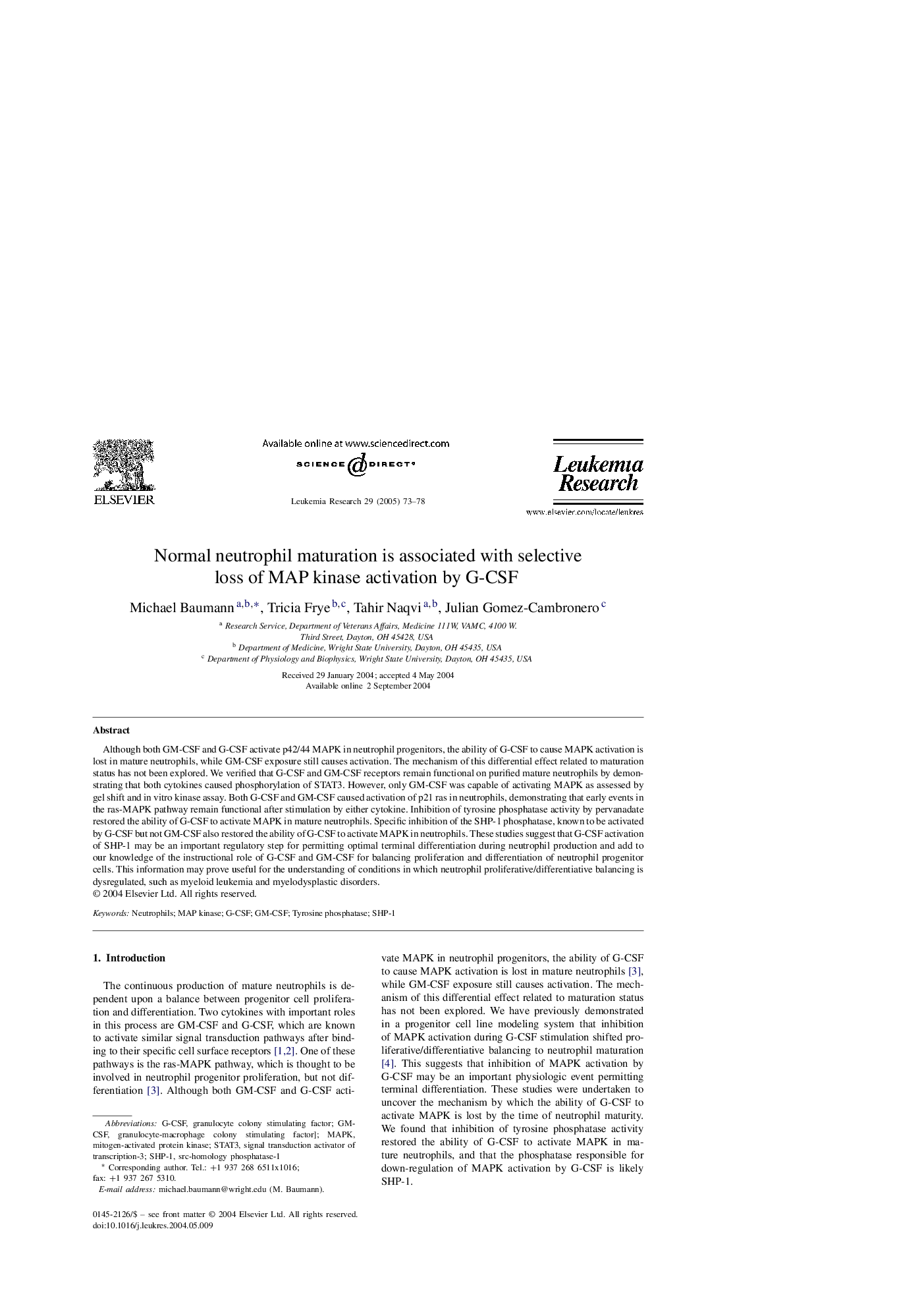| Article ID | Journal | Published Year | Pages | File Type |
|---|---|---|---|---|
| 10909823 | Leukemia Research | 2005 | 6 Pages |
Abstract
Although both GM-CSF and G-CSF activate p42/44 MAPK in neutrophil progenitors, the ability of G-CSF to cause MAPK activation is lost in mature neutrophils, while GM-CSF exposure still causes activation. The mechanism of this differential effect related to maturation status has not been explored. We verified that G-CSF and GM-CSF receptors remain functional on purified mature neutrophils by demonstrating that both cytokines caused phosphorylation of STAT3. However, only GM-CSF was capable of activating MAPK as assessed by gel shift and in vitro kinase assay. Both G-CSF and GM-CSF caused activation of p21 ras in neutrophils, demonstrating that early events in the ras-MAPK pathway remain functional after stimulation by either cytokine. Inhibition of tyrosine phosphatase activity by pervanadate restored the ability of G-CSF to activate MAPK in mature neutrophils. Specific inhibition of the SHP-1 phosphatase, known to be activated by G-CSF but not GM-CSF also restored the ability of G-CSF to activate MAPK in neutrophils. These studies suggest that G-CSF activation of SHP-1 may be an important regulatory step for permitting optimal terminal differentiation during neutrophil production and add to our knowledge of the instructional role of G-CSF and GM-CSF for balancing proliferation and differentiation of neutrophil progenitor cells. This information may prove useful for the understanding of conditions in which neutrophil proliferative/differentiative balancing is dysregulated, such as myeloid leukemia and myelodysplastic disorders.
Keywords
Related Topics
Life Sciences
Biochemistry, Genetics and Molecular Biology
Cancer Research
Authors
Michael Baumann, Tricia Frye, Tahir Naqvi, Julian Gomez-Cambronero,
